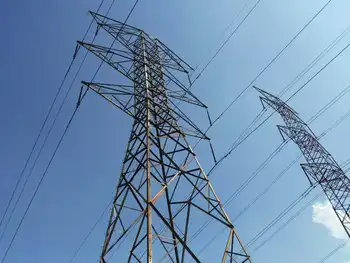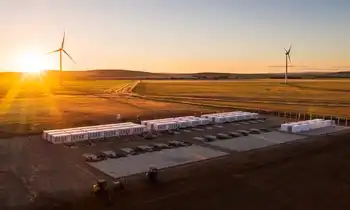Enron Canada seeks court order to stay afloat
Enron Canada Corp., which trades about C$14 billion ($9 billion) of gas and power annually, said in a letter to customers and suppliers that it was ``extremely creditworthy and financially sound'' despite the parent firm's Chapter 11 bankruptcy filing in the United States on Sunday.
Enron Canada chief executive Robson Milnthorp wrote in the letter, posted on the firm's Web site, that company lawyers would ask an Alberta judge on Wednesday for a court order to stay counterparties' rights to exit trading contracts while it works to disassociate itself from Houston-based Enron Corp.
It had first asked for such a stay on Friday, but was told to reapply this week.
Many firms that have contracts with Enron Canada have claimed the parent company's steep credit downgrades to below investment grade have constituted material changes that entitle them to terminate the deals, Milnthorp said.
Others have just stopped fulfilling obligations instead of terminating contracts, or have demanded ``unreasonable business terms,'' he wrote in the Dec. 2 letter.
Indeed, marketers with several Canadian natural gas suppliers and other trading houses told Reuters Monday they had stopped doing business with Enron Canada. ``A lot of people have just shut them down,'' one trader said. ``We're not allowed to do business with them because of the credit risk.''
As of the end of November, Enron Canada's gas and power contracts were C$2.11 billion in the black, and about C$880 million of that represented deals with Enron Corp., the unit said. It estimated year-to-date earnings at C$500 million.
Parent Enron Corp. said Monday it would lay off 4,000 workers in the aftermath of the former juggernaut's record bankruptcy filing, driven partly by a rival Dynegy Inc.'s decision to walk away from a proposed buyout of Enron.
The move shook world financial markets, with bank shares hit in Asia, Europe and North America as investors came to grips with their exposure to the collapse.
The crisis began in mid-October, when Enron, a longtime stock market star, posted a third-quarter loss and a billion dollar cut in equity linked to murky off-balance-sheet deals.
In Canada, Enron is a major player, especially in Alberta, where it has the rights to sell about 10 percent of the province's power under a newly deregulated regime. It also buys and sells about 5 billion cubic feet of gas a day Canada-wide. It employs 187 people in Alberta, Ontario and Quebec.
Enron Canada's plans include replacing the parent company's corporate guarantees with new ones from outside the organization, recapitalizing with third-party debt and equity and selling its Alberta power purchase agreement, it said.
It acquired the purchase agreement last year in the province's auction of the rights to buy and sell power in the deregulated market. The contract involves rights to sell 706 megawatts of electricity from the Sundance 2 power plant.
``We are well-positioned in this arrangement because neither Enron Canada nor its Canadian affiliates have been included in the U.S. Chapter 11 proceedings...,'' Milnthorp wrote.
Numerous Canadian energy firms have exposure to the Enron situation on both sides of the border. Major gas producer Alberta Energy Co. Ltd. has C$30 million to C$35 million of receivables, spokesman Alan Boras said.
Talisman Energy Inc. is owed ``less than C$10 million,'' spokesman Dave Mann said.
Power generator TransAlta Corp. said it was owed about C$10 million, but had the same amount payable to Enron.
($1-$1.58 Canadian)
Related News

For Hydro-Québec, selling to the United States means reinventing itself
MONTREAL - For 40 years, through the most vicious interprovincial battles, Canadians could agree on one way Quebec is undeniably superior to the rest of the country.
It’s hydropower, and specifically the mammoth dam system in Northern Quebec that has been paying dividends since it was first built in the 70s. “Quebec continues to boast North America’s lowest electricity prices,” was last year’s business-as-usual update in one trade publication.
With climate crisis looming, that long-ago decision earns even more envy. Not only do they pay less, but Quebeckers also emit the least carbon per capita of any province.
It may surprise most Canadians,…





